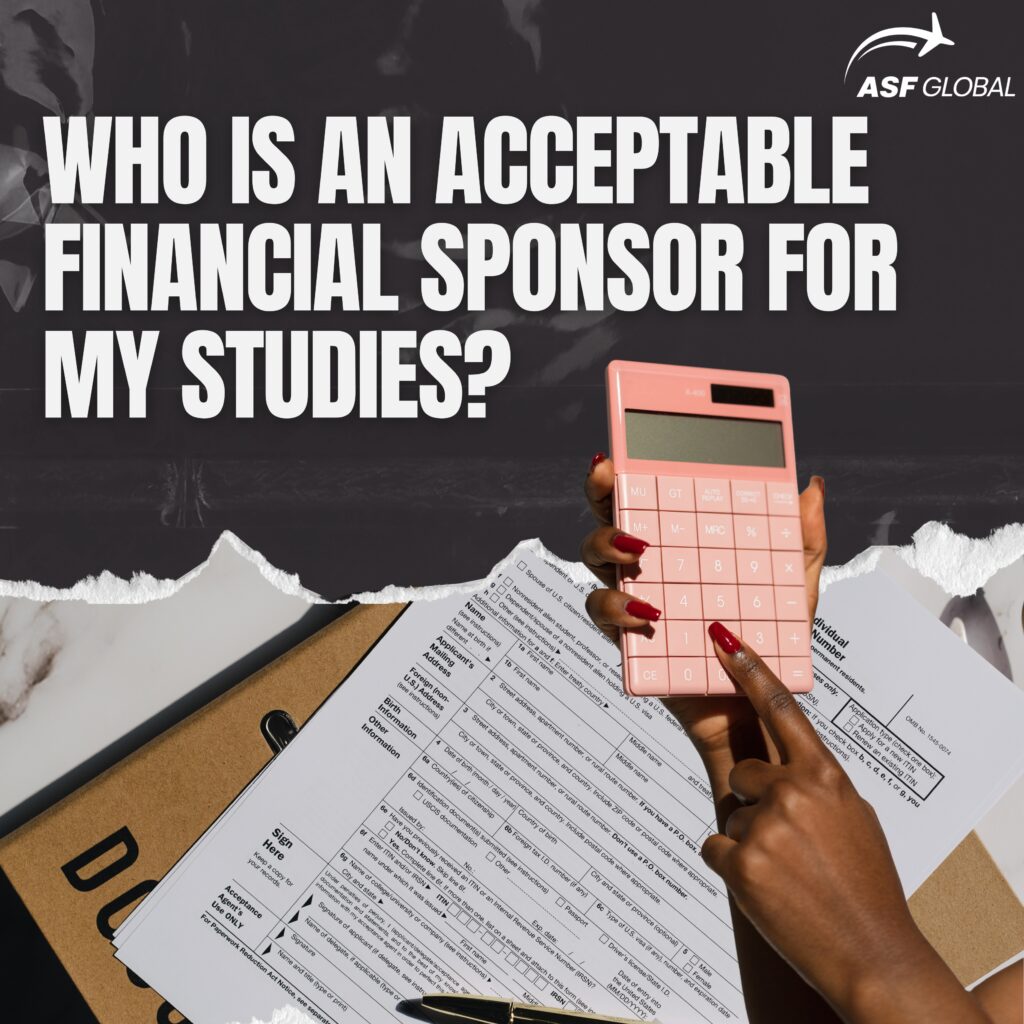
Depending on the country, university, and visa requirements, a financial sponsor may or may not be acceptable for study abroad. A sponsor is typically someone who can offer substantiated evidence of having enough money to pay for your tuition, living expenses, and other educational costs.
The following lists the requirements for becoming a legitimate financial sponsor:
Parents and legal Guardians:
Sponsors are mostly parents or legal guardians. To demonstrate that they can support your education, they must show proof of their financial stability, such as bank statements, income tax returns, or payslips.
Close Relatives financial sponsor:
If they can demonstrate their relationship to you (for example, by showing birth certificates or other official documents) and meet the financial requirements, siblings, grandparents, or other close family members may sponsor you.
Spouse financial sponsor :
If you are married, your spouse may sponsor you by providing documentation of their ability to pay for your education.
Educational Institutions or Organizations:
Students may be sponsored by certain universities, government agencies, or scholarship programs. This includes institutional funding, grants, and fellowships, all of which may call for particular paperwork, such as award letters.
Employers financial sponsor:
Your employer may occasionally pay for your education, especially if you’re enrolled in graduate or professional programs. They must submit a letter attesting to their financial support and dedication.
Third-Party Sponsors:
In certain countries, non-relatives, like family friends or private individuals, may be permitted as long as they can furnish a clear affidavit of support, evidence of funds, and occasionally a letter outlining their relationship with you.
Government or NGO Sponsors:
Certain nations permit sponsorship by international organizations, NGOs, or government programs, particularly for exchange programs or particular scholarships.
However, recently most of the countries prefer student files whose sponsors are their parents.
However, recently most of the countries prefer student files whose sponsors are their parents.
- Proof of Funds: Sponsors must present recent bank statements, certificates of fixed deposit, or other financial documents proving adequate funds (the amount varies by country and program, for example, $20,000 to $50,000 annually for the U.S.).
- Proof of Funds: Sponsors must present recent bank statements, certificates of fixed deposit, or other financial documents proving adequate funds (the amount varies by country and program, for example, $20,000 to $50,000 annually for the U.S.).
- Income Verification: Documents proving the sponsor’s financial stability, such as tax returns, pay stubs, or company records.
Country Specific Requirements:
- Canada: Sponsors must show proof of funds (like bank statements or GIC for some programs) and a letter of support. The amount changes depending on the province and the program.
- Australia: Sponsors must show that they have enough money to pay for school, living expenses (about AUD 21,000 per year), and travel. You need to send a letter of support and financial documents.
- UK: For a Student visa, sponsors must show that they have money set aside for tuition and living expenses (for example, £1,334 a month in London) for at least 28 days before applying for the visa.
- Europe (like Germany and France): Some countries need a blocked bank account (like €11,208/year in Germany) or a letter of sponsorship from a person or group.
Additional Requirements:
- Ask the university and the visa office about their specific requirements, as they are different.
- Make sure that all of your papers are up to date (usually within the last three to six months) and, if necessary, that they are translated into the right language.
- Make sure that all of your papers are up to date (usually within the last three to six months) and, if necessary, that they are translated into the right language.
